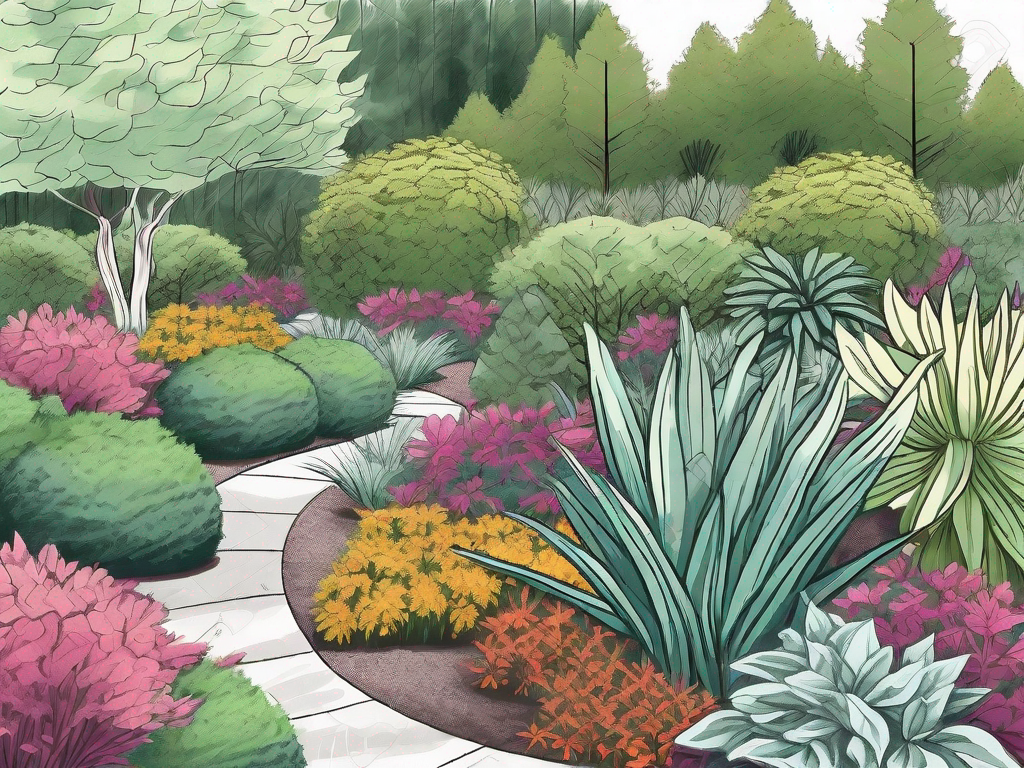Exploring Limestone as a Landscaping Mulch Alternative
Published on: March 27, 2024
Get an estimate for your project in 60 seconds

Landscaping is an art that requires creativity, innovation, and a keen eye for detail. One of the key aspects of landscaping is the use of mulch. Traditionally, organic materials like wood chips, straw, and compost have been the go-to options for mulch. However, in recent years, there has been a growing interest in using alternative materials for mulch, one of which is limestone.
But can limestone be used for a landscaping mulch alternative project? The answer is a resounding yes. Limestone, with its unique properties and aesthetic appeal, can indeed serve as an excellent mulch alternative. In this comprehensive guide, we will delve into the world of limestone mulch, exploring its benefits, drawbacks, and how to use it effectively in your landscaping project.
Understanding Limestone as a Mulch Alternative
Limestone is a sedimentary rock composed mainly of calcium carbonate. It is widely used in the construction industry and is also a popular choice for landscaping projects. When used as a mulch alternative, limestone is typically crushed into small, manageable pieces that can be easily spread over the soil.
One of the main reasons why limestone is gaining popularity as a mulch alternative is its aesthetic appeal. The natural, earthy tones of limestone can complement a wide range of landscape designs, adding a touch of elegance and sophistication. Moreover, limestone is a durable material that can withstand harsh weather conditions, making it a practical choice for outdoor landscaping projects.
Benefits of Using Limestone as a Mulch Alternative
There are several benefits of using limestone as a mulch alternative. First and foremost, limestone helps to improve soil health. It can neutralize acidic soils, making them more suitable for plant growth. This is particularly beneficial for plants that prefer alkaline soil conditions.
Secondly, limestone can help to conserve soil moisture. Like traditional mulch, limestone can reduce evaporation, helping to keep the soil moist and promoting healthy plant growth. Additionally, limestone can also deter weeds, reducing the need for frequent weeding.
Lastly, limestone is a cost-effective mulch alternative. It is widely available and can be purchased in bulk, making it a budget-friendly choice for large landscaping projects. Companies like Hello Gravel offer a wide range of limestone products suitable for landscaping purposes.
Drawbacks of Using Limestone as a Mulch Alternative
While limestone offers several benefits as a mulch alternative, it is not without its drawbacks. One of the main concerns with using limestone is that it can raise the pH level of the soil, making it too alkaline for certain plants. Therefore, it is important to test your soil’s pH level before using limestone mulch.
Another potential drawback of using limestone is that it does not decompose like organic mulch. This means it does not contribute to soil fertility over time. However, this can be mitigated by incorporating organic matter into the soil periodically.
Lastly, limestone can be a bit heavy, making it less suitable for sloped areas as it may wash away in heavy rains. Therefore, it is best used in flat or gently sloping areas.
How to Use Limestone as a Mulch Alternative
Using limestone as a mulch alternative is a straightforward process. The first step is to prepare the area where you want to apply the limestone. This involves clearing the area of any debris and weeds. Once the area is prepared, you can spread the limestone evenly over the soil.
It is recommended to use a layer of limestone that is about 2-3 inches thick. This is sufficient to conserve soil moisture and deter weeds. However, you may need to adjust the thickness of the limestone layer depending on the specific needs of your plants and the local climate conditions.
After applying the limestone, it is a good idea to water the area thoroughly. This will help to settle the limestone and prevent it from being blown away by the wind. Over time, you may need to add more limestone to maintain the desired thickness.
If you are planning a large landscaping project and need a substantial amount of limestone, consider getting a quote from Hello Gravel. They offer competitive prices and can deliver the limestone directly to your project site.
Conclusion
In conclusion, limestone can indeed be used for a landscaping mulch alternative project. With its unique properties and aesthetic appeal, it can serve as an excellent mulch alternative. However, like any landscaping material, it is important to use it wisely and consider the specific needs of your plants and soil.
Remember, landscaping is an art, and the choice of materials can greatly influence the final outcome. So, don’t be afraid to experiment with different materials and see what works best for your project. After all, the goal is to create a beautiful, healthy, and sustainable landscape that you can enjoy for years to come.
Ready to Enhance Your Landscape with Limestone?
At Hello Gravel, we understand the importance of creating a landscape that is both beautiful and easy to maintain. Our high-quality limestone is the perfect mulch alternative to give your garden a fresh, elegant look while ensuring the health of your plants and soil. Experience the convenience of our white-glove service by ordering directly from our website. Whether you’re working on a small driveway project or a large civil construction, we’ve got you covered. Check out our products today and let us deliver the beauty of limestone right to your doorstep.
Author: alan